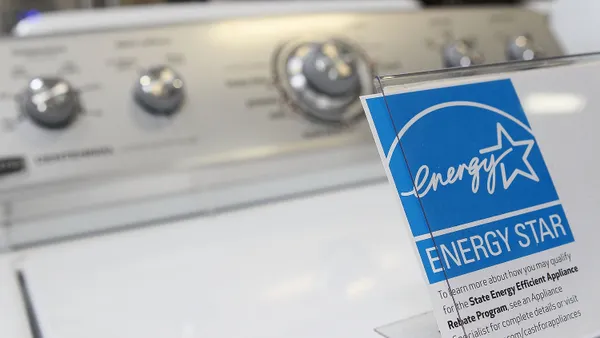Dive Brief:
- Mexico will begin experimenting with a cap-and-trade system later this year, rolling it out for a 12-month test before moving to full operations in 2018, Reuters reports.
- Mexico has been taking steps to address its pollution issues; the country committed to a 22% reduction in greenhouse gasses by 2030 to help it reach the long-term Paris climate accord goals, and earlier this year struck a deal with the United States and Canada to pursue more low-carbon power.
- Research firm MEXICO2 will run the cap-and-trade program, Reuters said, which will involve verifying emissions levels reported to the country's carbon certificate registry.
Dive Insight:
It's been more than two decades since Mexico City was known as the most-polluted city on Earth, and since then the country has taken steps to reduce its emissions and clean up the energy and transportation sector.
Mexico is taking on big commitments this year, including a trilateral agreement on clean energy and the new launch of a cap-and-trade pilot that will initially target dozens of companies.
According to Reuters, the pilot would kick off in November and would involve voluntary participation by up to 60 companies.
"When we have mechanisms that facilitate the reduction of greenhouse gases, we're implicitly reducing pollution," Reuters quoted Rodolfo Lacy, Mexico's deputy minister for environmental policy and planning.
The country is also targeting greenhouse gas reductions as part of international agreements, and this summer struck a deal with its neighbors to the north to clean up its power sector.
Mexico, along with the U.S. and Canada, in June reached a regional deal to produce 50% of their combined electricity by 2025 from clean energy sources, including wind, solar, nuclear and hydropower. Currently the three nations average 37% renewables and nuclear energy.
For Mexico, it is a higher hurdle than for the other nations. Mexico got less than 20% of its electricity from renewables and nuclear in 2015, while the U.S. currently sources about a third of its power generation from renewable and nuclear resources, and Canada is over 80%.
The environmental commitments come as Mexico is also reshaping the ownership structure of the power sector, breaking up its public, vertically-integrated utility system into a deregulated, market-based system open to private companies.














